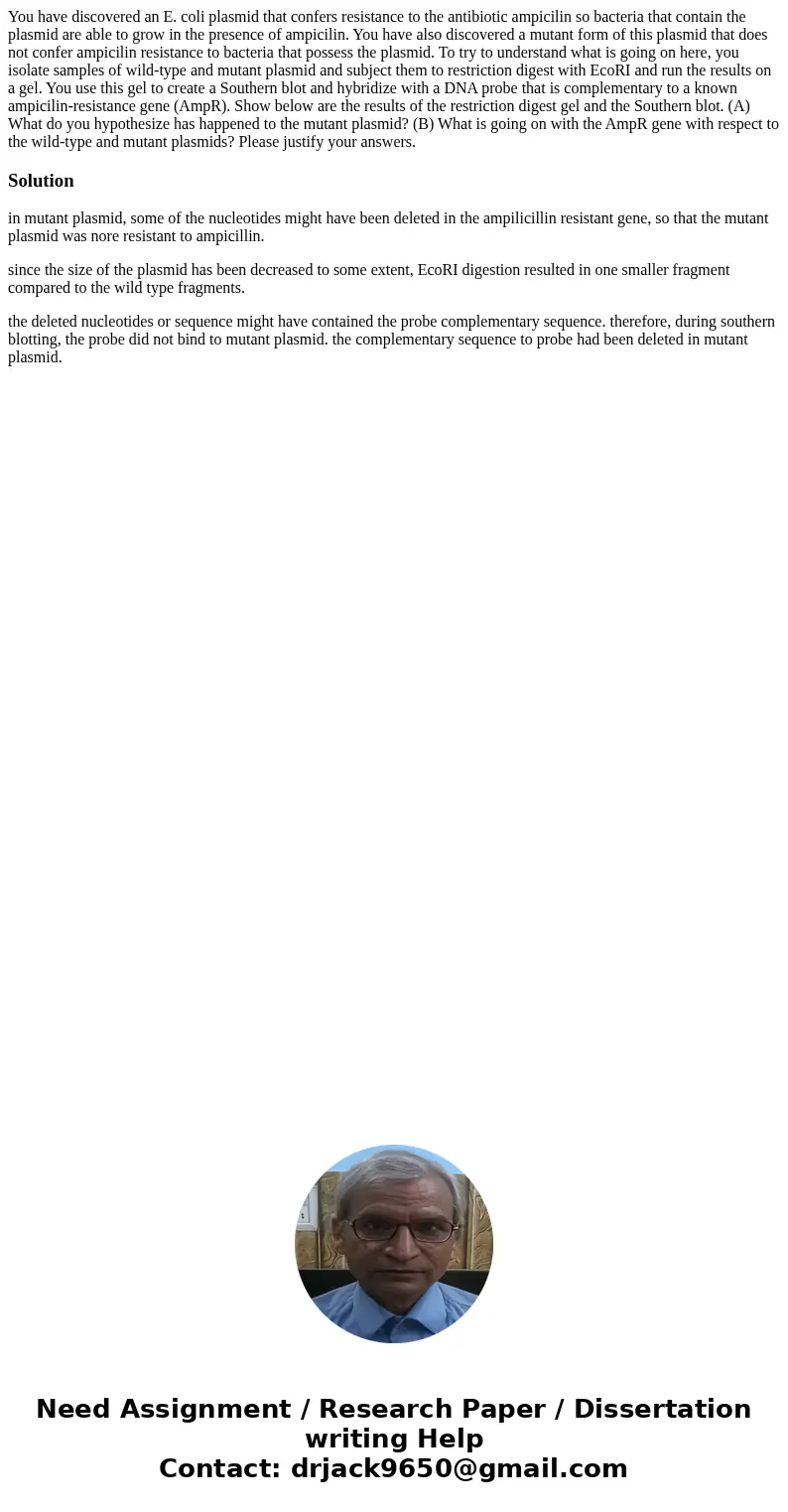You have discovered an E coli plasmid that confers resistanc
You have discovered an E. coli plasmid that confers resistance to the antibiotic ampicilin so bacteria that contain the plasmid are able to grow in the presence of ampicilin. You have also discovered a mutant form of this plasmid that does not confer ampicilin resistance to bacteria that possess the plasmid. To try to understand what is going on here, you isolate samples of wild-type and mutant plasmid and subject them to restriction digest with EcoRI and run the results on a gel. You use this gel to create a Southern blot and hybridize with a DNA probe that is complementary to a known ampicilin-resistance gene (AmpR). Show below are the results of the restriction digest gel and the Southern blot. (A) What do you hypothesize has happened to the mutant plasmid? (B) What is going on with the AmpR gene with respect to the wild-type and mutant plasmids? Please justify your answers. 
Solution
in mutant plasmid, some of the nucleotides might have been deleted in the ampilicillin resistant gene, so that the mutant plasmid was nore resistant to ampicillin.
since the size of the plasmid has been decreased to some extent, EcoRI digestion resulted in one smaller fragment compared to the wild type fragments.
the deleted nucleotides or sequence might have contained the probe complementary sequence. therefore, during southern blotting, the probe did not bind to mutant plasmid. the complementary sequence to probe had been deleted in mutant plasmid.

 Homework Sourse
Homework Sourse